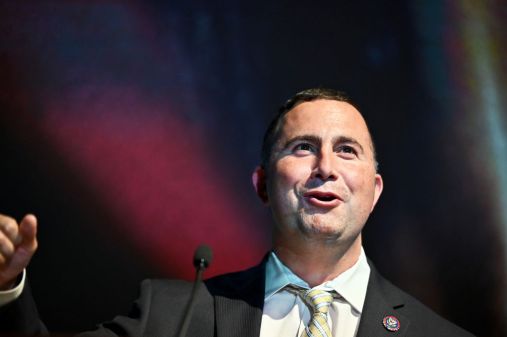Congress ramps up push to arm consumer product regulators with AI tools

A move to empower federal consumer product regulators with artificial intelligence tools picked up steam this week with the introduction of a bipartisan Senate bill whose companion has already passed the House.
The Consumer Safety Technology Act from Sens. John Curtis, R-Utah, and Lisa Blunt Rochester, D-Del., calls on the Consumer Product Safety Commission to create a pilot program that uses AI to track product injury trends, identify hazards, monitor recalls and pinpoint which products fall short of critical standards.
The legislation also directs the Federal Trade Commission and the Commerce secretary to deliver a report on blockchain technology and tokens.
“The world is changing fast, and consumer protection must keep pace,” Curtis said in a press release Thursday. “This bill puts the right tools in the hands of experts — employing AI to catch dangerous products before they hurt families, exploring blockchain to strengthen supply chains, and making sure digital tokens don’t become a new avenue for fraud. This is about keeping people safe while helping American innovation thrive.”
The House version of the bill, introduced in March by Rep. Darren Soto, cleared the lower chamber in July. The Florida Democrat said at the time that the legislation would “help make the CPSC more efficient.”
“The reality is, the crooks are already using AI,” Soto said. “The cops on the beat need to be able to use this, too.”
The Senate bill directs the CPSC to seek out a variety of stakeholders to consult on the agency’s AI pilot, including cybersecurity experts, technologists, data scientists, machine-learning specialists, retailers, consumer product safety groups and manufacturers.
Within a year of the pilot’s conclusion, the CPSC would be charged with submitting a report to Congress detailing its findings and data, “including the extent to which the use of artificial intelligence improved the ability of the Commission to advance the consumer product safety mission,” the bill states.
The blockchain section of the bill orders the FTC and Commerce Department to study how the technology can be leveraged to protect consumers by guarding against fraud attempts and other unfair and deceptive practices. There would also be an examination of what federal regulations could be modified to spur blockchain adoption.
A separate report would look into unfair or deceptive acts and practices tied to transactions via digital tokens. A fact sheet from Curtis said that provision is aimed at “ensuring consumers are protected without stifling responsible innovation.”
Blunt Rochester said in a statement that the government “must be able to keep up with new and emerging technologies, especially when it comes to consumer safety.”
“The Consumer Safety Technology Act would allow the Consumer Product Safety Commission to explore using artificial intelligence to further its critical goals,” she continued. “I am grateful to work alongside Senator Curtis on this legislation and look forward to getting it over the finish line.”






